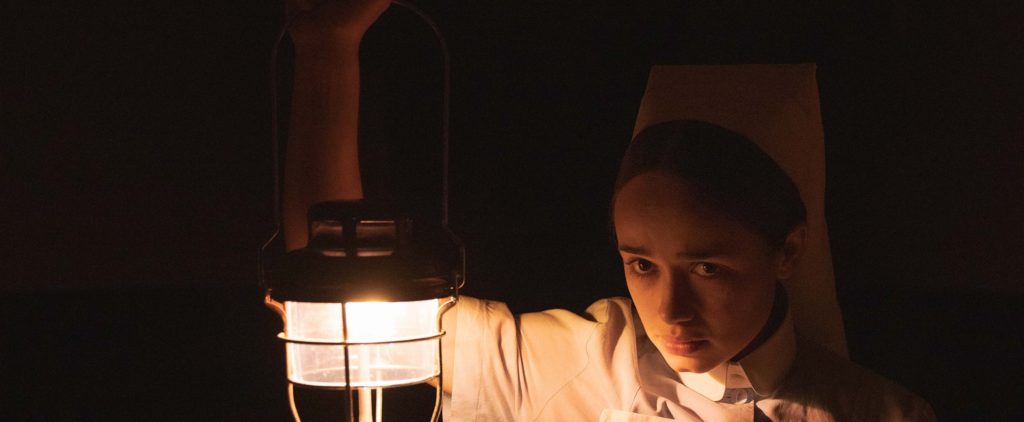Corinna Faith is a writer-director working across TV and film. She began work as a film camera assistant before moving into directing factual television. After 10 years in that role, she started making short dramas including “Thai Bride” and “Care,” which was BAFTA nominated. Faith has recently written for Netflix, New Pictures, and World TV. “The Power” marks her first feature length film.
“The Power” premieres on Shudder April 8.
W&H: Describe the film for us in your own words.
CF: “The Power” is a period supernatural horror story about a young nurse working her first shift at an inner-city hospital during the power cuts that the UK endured at that time. Val is afraid of the dark, but is forced to stay on that night and work during the pitch-black of a cut. Things go from bad to much, much worse.
W&H: What drew you to this story?
CF: I wanted to write about institutions and the toxic ways in which they can allow people to behave. I chose a period setting, but this is very much a story about the present, the need for women to find their voice, and the ways in which this is prevented.
W&H: What do you want people to think about after they watch the film?
CF: I’d like people to enjoy the ride, and hope some will find it scary. [I’d also like for people to think] about the dangers of staying silent when something is very wrong.
W&H: What was the biggest challenge in making the film?
CF: Finding a location that matched our ambition for the story was a huge challenge. In the end the perfect place, which is actually located in East London where the film is set, opened up and we got very lucky.
W&H: How did you get your film funded? Share some insights into how you got the film made.
CF: The script was financed and developed by a body called Creative England, and then developed further at the British Film Institute (BFI). Then we got financed by the BFI, which is a public finance body for the UK, and by Headgear, a private financier.
W&H: What inspired you to become a filmmaker?
CF: I’ve always loved camera, visual imagery, and stories. I remember going to see Jane Campion’ “The Piano” and thinking, “Wow. I want to do that.” It was massive to have a female role model telling a story of that scale.
W&H: What’s the best and worst advice you’ve received?
CF: Worst advice: Wait till you get the film made before you try and have your baby.
Best: Do your own thing.
W&H: What advice do you have for other women directors?
CF: Stick to your guns.
W&H: Name your favorite woman-directed film and why.
CF: Too many to have one favorite, but Kathryn Bigelow’s “Point Break” comes to mind. I distinctly remember thinking, “Huh. A woman made that. I was not led to believe women were able to make films like that. How very interesting.”
W&H: How are you adjusting to life during the COVID-19 pandemic? Are you keeping creative, and if so, how?
CF: I’ve been finishing the feature and working in a Zoom-based writers room during COVID-19. Work has continued.
W&H: The film industry has a long history of underrepresenting people of color onscreen and behind the scenes and reinforcing — and creating — negative stereotypes. What actions do you think need to be taken to make Hollywood and/or the doc world more inclusive?
CF: This has to be everyone’s fight, not just left up to people of color to articulate.
Nurturing more diverse producers would be a good step.







